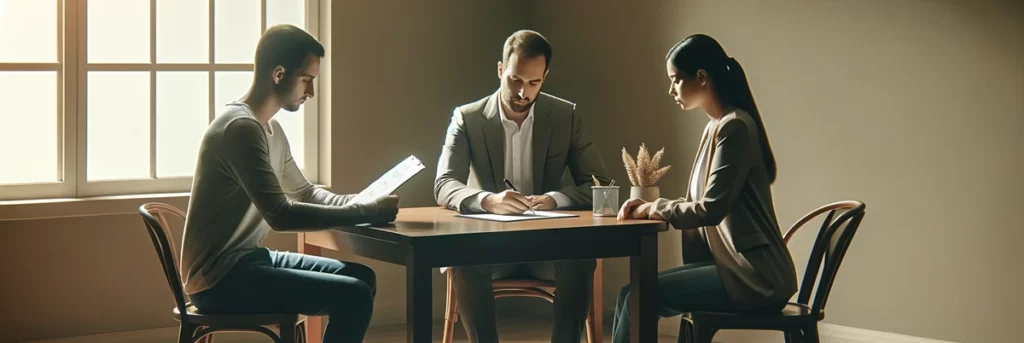
Feature Article
Overview
Divorce can be one of the most challenging experiences a person can go through. The process can be further complicated when the spouses cannot come to an agreement on the terms of their separation. This situation constitutes what is known as a contested divorce. In Arizona, a contested divorce can take anywhere from several months to over a year, depending on some factors. In this feature article, we will delve into the differences between uncontested and contested divorce, what influences their outcomes, and tips to navigate each situation.
The Differences Between Uncontested and Contested Divorce
Uncontested divorces happen when both spouses agree on all the terms of their divorce, including child custody, property division, spousal support, and any other concerns representing problems. These divorces are much easier and less stressful to handle, as, in other words, they are uncontested. Most uncontested divorce cases in Arizona can be completed within a few months, with the help of a family law attorney or a mediator.
On the other hand, contested divorce happens when spouses cannot agree on the terms of their separation. Contested divorce cases often lead to formal court proceedings where each side presents their arguments before a judge, who will make the final decisions. These divorces can take more time and are often more costly than an uncontested divorce.
Factors Influencing the Length of a Contested Divorce
Several factors contribute to the time a contested divorce case might take. Some of these factors include:
Discovery Process Efficiency
The discovery process refers to the process where each spouse gathers evidence to support their claims. The process involved involves discovery requests, interrogatories, requests for production of documents, and depositions. If a spouse does not respond quickly to these requests, the process may take longer.
Willingness to Negotiate
If both spouses are willing to sit down and discuss the terms of the separation, this can speed up the process by eliminating the need for formal court proceedings. However, if one spouse is unwilling to compromise, this can lead to more delays and a longer process.
Type of Assets Involved
The more complex the assets are, the longer it will take to divide them. For example, if a couple has several real estate properties, business interests, and significant investments, they may need to hire experts to determine the value of these assets, which may take more time.
Availability of Court Dates
In many places in the United States, there is a backlog of divorce cases waiting to go to trial due to courts' limited resources. This can lead to long waits between court appearances and, as a result, a longer divorce process.
Divorce Representation
Having an experienced attorney representing each spouse can make the negotiation process smoother and ensure that each party's rights are protected. Having an experienced attorney means that they will help you understand the process and avoid any legal landmines in the proceedings.
Presence of Children
When a divorce includes child custody, or child support, it can take a long time to settle. States usually prioritize the best interests of the child in custody arrangements, which means that sometimes a family court judge may have to choose which parent gets custody.
Spousal Support
When one spouse requests alimony, it can make a divorce more contested, leading to more negotiations and further court proceedings.
Conclusion
Navigating a divorce, whether contested or uncontested, can be challenging. However, understanding the differences between the two processes can help you know what to expect and how to prepare for your case's best outcome. In any case, having an experienced family law attorney is important during this sensitive time. They will help you understand the legal aspects of your case, guide you through the legal path that follows your chosen form of divorce, and help you avoid common mistakes.
Uncontested and Contested Divorce - Denovo Law Arizona.








